The Assassin’s Creed video game series by Ubisoft has become one of the pillars of the gaming world, providing a distinctive combination of historical exploration, compelling storytelling, and exciting action. Since its launch in 2007, the franchise has taken players through various eras, from the lively streets of Renaissance-era Italy to the mystical realms of Ancient Greece and even the tumultuous period of the American Revolution. Each new installment not only brings a different historical setting to life, but also introduces gameplay innovations, making every title a one-of-a-kind experience.Assassin’s Creed Mirage in Focus: Ranking Every Assassin’s Creed Game to Date
In this in-depth look, we highlight the best of what the Assassin’s Creed franchise has to offer. The ranking considers not just the thrill of gameplay but also how well each game evokes the spirit of its setting, weaving history and fiction into a seamless tapestry. These games go beyond just transporting players to the past; they demonstrate the series’ ability to evolve and push the boundaries of what’s possible in video games. Let’s embark on this journey through time, unraveling the mysteries and reliving the adventures that have defined the Assassin’s Creed legacy.
10. Assassin’s Creed Unity (2014)

Summary: Set during the French Revolution, Unity was a landmark entry featuring cooperative play and a highly detailed Paris. With crowded streets and grand landmarks, Unity was visually stunning for its time. As Arno Dorian, you experience the era’s upheaval. As the first next-gen exclusive, Unity showcased graphics and crowd mechanics advancements.
Why Play: Unity offers an incredibly immersive historical setting. Meticulous details in Revolutionary Paris, enhanced parkour and assassinations make this a noteworthy entry. Co-op play provides a unique social dimension.
Weaknesses: The game had technical issues at launch, including gameplay-affecting bugs and glitches. Though many were fixed, they impacted initial reception.
9. Assassin’s Creed: Revelations (2011)

Summary: Revelations concludes the stories of Altaïr and Ezio, two beloved characters. Set in Constantinople, it ties up loose ends satisfactorily. New gameplay elements like the hookblade and bomb crafting added new dimensions to navigation and tactics.
Why Play: For longtime Altaïr and Ezio fans, Revelations provides long-awaited narrative closure. Constantinople is beautifully rendered for an immersive, adventurous experience. The soundtrack and voice acting add depth.
Weaknesses: Some additions like Den Defense didn’t work well. The game struggled to innovate, feeling too familiar for some players.
8. Assassin’s Creed Valhalla (2020)
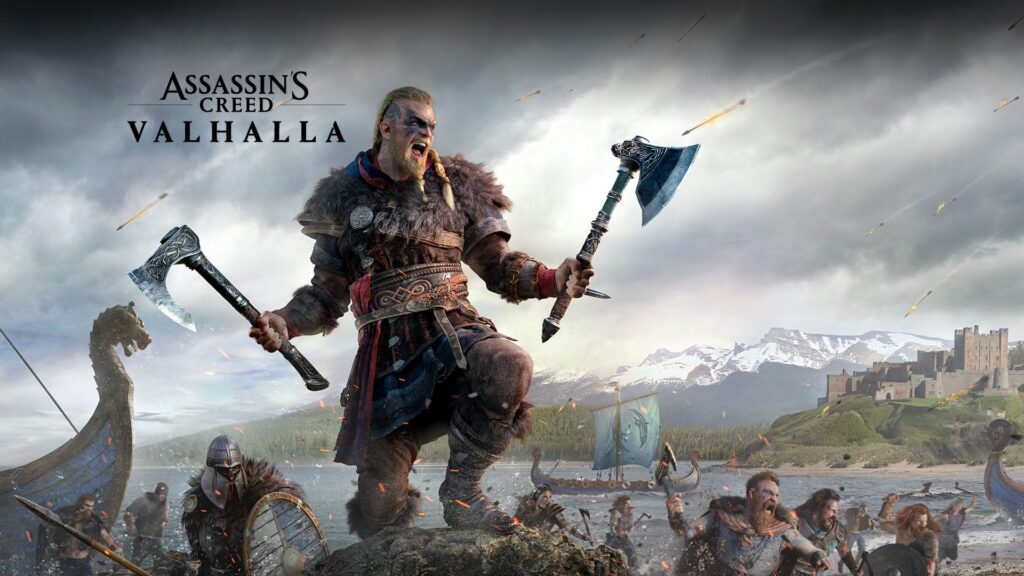
Summary: In Valhalla, you play as Viking Eivor during the invasion of England, blending history and Norse mythology. Valhalla introduced changes like world events instead of side quests and weightier combat. The complex narrative explores loyalty, family, and cultural clashes.
Why Play: Valhalla’s vast, detailed open world is stunning. Its Viking portrayal seamlessly integrates mythology. World events and combat offer a fresh take on the formula.
Weaknesses: The massive scale can feel overwhelming. The narrative doesn’t always fully engage players. Some find combat mechanics unwieldy.
7. Assassin’s Creed Syndicate (2015)
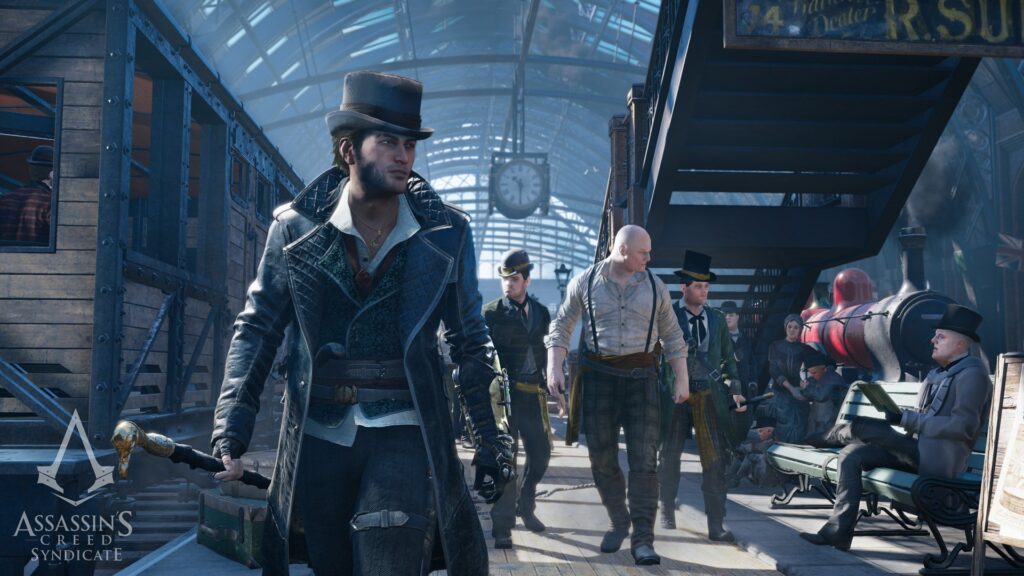
Summarized Overview: Assassin’s Creed Syndicate transports players to Victorian London during the Industrial Revolution. It introduces twin main characters, Jacob and Evie Frye, who each have unique abilities and personalities. The game features diverse missions like infiltrating factories and carriage racing, all against a backdrop of technological progress and social change. It also introduced a grappling hook that transformed navigation in the series.
Why to Play: The Victorian London setting is extremely well-realized and atmospheric, blending historical authenticity with fantastical elements. Playing as two protagonists provides different perspectives on the narrative, adding depth. The soundtrack and attention to detail create an immersive experience.
Weaknesses: There can be technical issues and repetitive combat that detracts from the game. The industrial focus may not appeal to those wanting more traditional historical settings. Also worst thing is how you need to upgrade both brother and sister separately.
6. Assassin’s Creed: Brotherhood (2010)
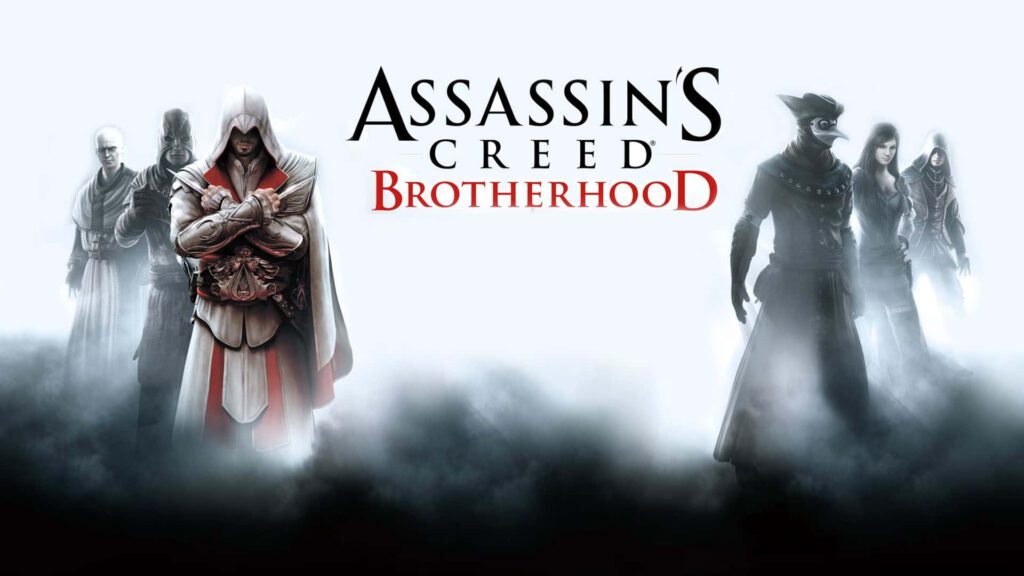
Summary: Brotherhood continues Ezio Auditore’s story in Rome, offering a focused, unified setting. New mechanics like recruiting assassins and liberating Borgia Towers added strategy and depth. It marked the series’ first multiplayer mode, allowing playing as the hunter.
Why Play: Brotherhood refined Assassin’s Creed II’s formula for a polished experience. Meticulously crafted Rome brims with historic details. The Brotherhood mechanic adds satisfying strategy and leadership.
Weaknesses: The similar story and setting to AC II lacked narrative innovation for some players.
5. Assassin’s Creed Mirage (2023)
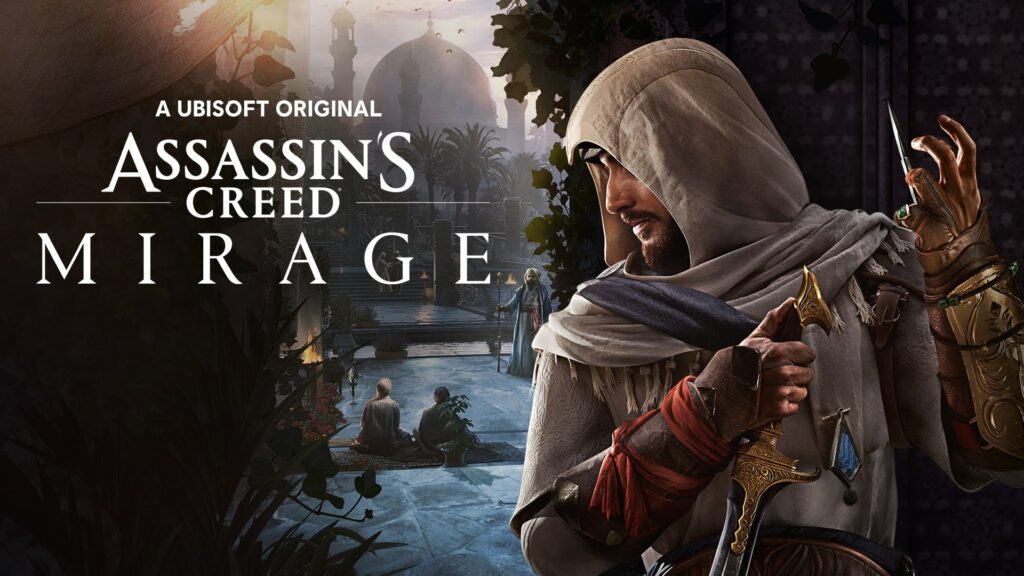
Summary: Assassin’s Creed Mirage takes the series back to its roots by placing players in 9th-century Baghdad. As Basim Ibn Ishaq, you focus on classic gameplay like stealth and parkour in the vibrant, historical setting. By stripping away recent complexity, Mirage offers a more focused, traditional experience. Although it lacks massive open worlds, Mirage compensates with a stunning, dense cityscape that immerses you in history.
Why Play: Mirage provides nostalgic, old-school gameplay by emphasizing stealth and dense urban environments. This refreshing change presents a fun challenge for long-time fans.
Weaknesses: Despite strong gameplay, Mirage’s narrative and characters don’t match the impact of other entries. The reduced scale may disappoint fans of recent expansive games.
4. Assassin’s Creed II (2009)
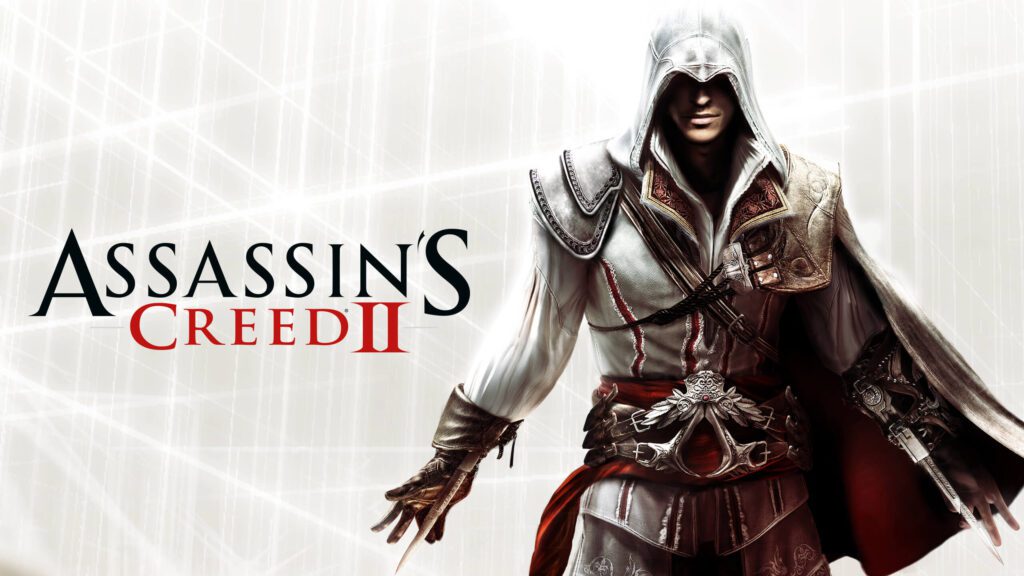
Summarized Overview: This sequel introduces Ezio Auditore da Firenze in Renaissance Italy, a time of intrigue and flourishing arts. Assassin’s Creed II greatly improved gameplay with more dynamic assassinations, expanded stealth/distraction tactics, and better combat. It added new exploration like catacomb missions and the upgradeable Villa Auditore headquarters.
Why to Play: The game masterfully combines a charismatic protagonist with a rich, vibrant setting. Ezio’s journey from carefree youth to seasoned Assassin is compelling and emotional. The depiction of Renaissance Italy is stunning and immersive.
Weaknesses: While it improved greatly over its predecessor, some may find the many collectible side quests and occasional repetitive missions less appealing.
3. Assassin’s Creed Odyssey (2018)
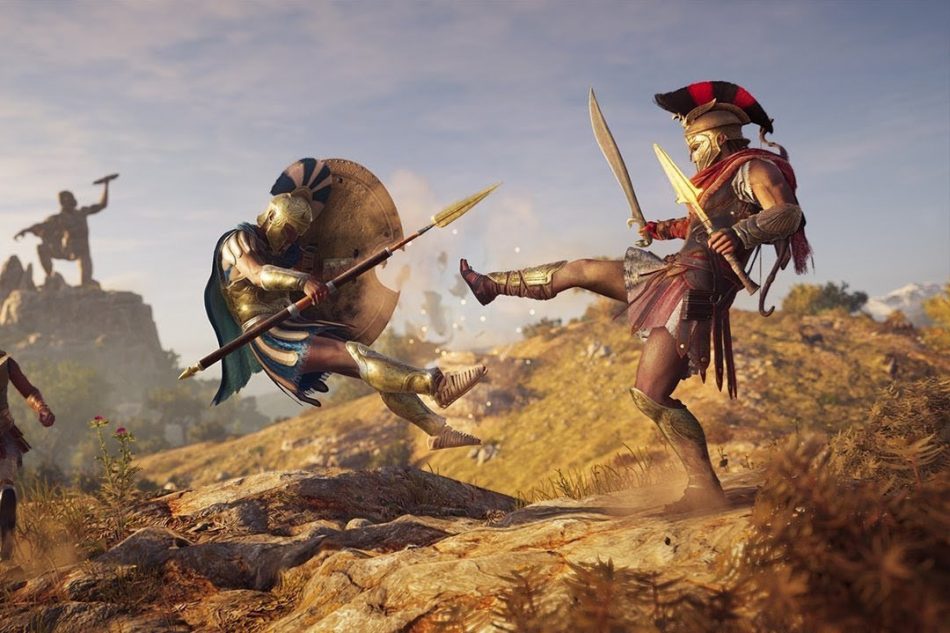
Summarized Overview: Set in ancient Greece during the Peloponnesian War, Assassin’s Creed Odyssey expanded RPG elements, letting players choose between Alexios and Kassandra. It features a huge open world of stunning landscapes on both land and sea. Odyssey introduced complex notoriety, large-scale battles, and an engaging story with eccentric side quests.
Why to Play: The expansive world is visually stunning with vivid ancient Greece vistas. Flexible gameplay like branching narratives offers a personalized experience. Naval warfare adds another exploration/combat dimension.
Weaknesses: The massive scale can be overwhelming, with a very lengthy story. Some may dislike the greater RPG focus if they prefer traditional stealth mechanics.
2. Assassin’s Creed: Origins (2017)
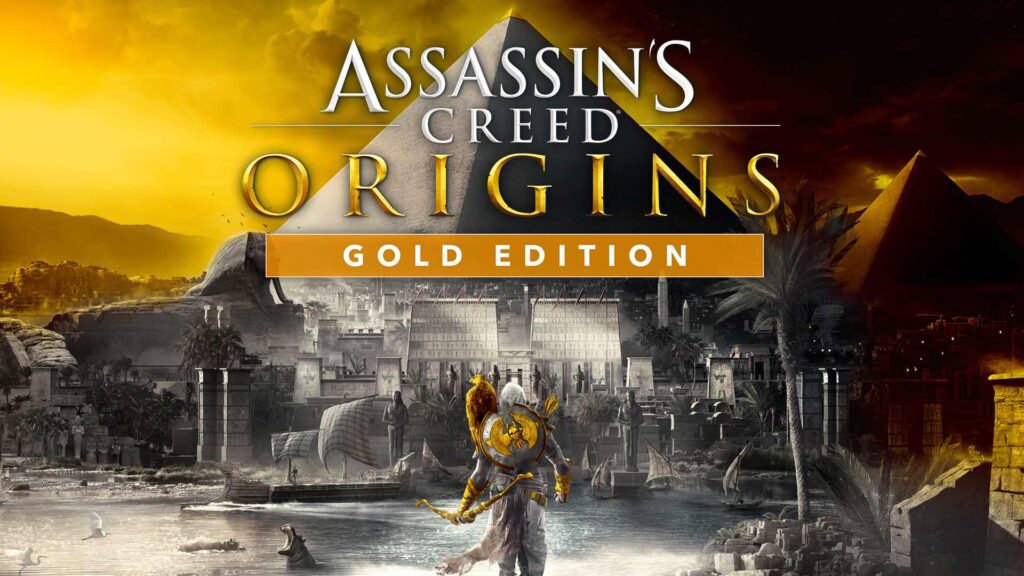
Summarized Overview: Assassin’s Creed: Origins marked a major shift into an open-world RPG. Set in ancient Egypt, it follows Bayek and Aya seeking justice and founding the Assassin Brotherhood. It features a huge, meticulously detailed world, loot-based progression, and more action-oriented RPG combat.
Why to Play: It’s a visual masterpiece bringing ancient Egypt to life. The story weaves personal and historical events together compellingly. RPG elements like progression and nuanced combat add depth.
Weaknesses: The mechanics shift from past games may jar those wanting traditional gameplay. It also has some bugs and pacing issues.
1. Assassin’s Creed IV: Black Flag (2013)
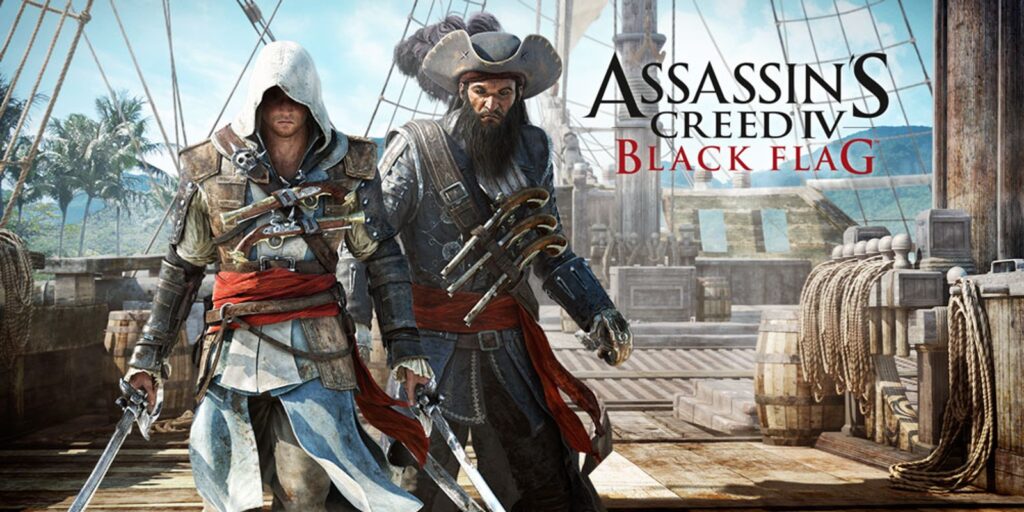
Summarized Overview: Assassin’s Creed IV: Black Flag focuses on piracy during the Golden Age. As Edward Kenway, a pirate caught up in the Assassin-Templar feud, players explore a vast open sea with islands, forts, and secrets. Naval combat is central, with ship battles and seamless naval/on-foot exploration.
Why to Play: It’s an exhilarating adventure capturing pirate life. The naval battles are some of the best in the series, strategically thrilling. The Caribbean setting is beautifully realized, with unparalleled freedom to explore.
Weaknesses: The piracy/naval focus may not appeal to those wanting traditional city stealth gameplay. Some story elements may feel disconnected from the broader narrative
Conclusion:
Every Assassin’s Creed game provides a unique window into different historical eras, giving players an immersive experience that blends fiction with historical facts. From the Renaissance to the high seas of the Caribbean, these games have set the standard for open-world action-adventure titles, offering the perfect combination of narrative depth, engaging gameplay, and stunning visuals. As Ubisoft continues expanding the series, fans can look forward to more thrilling adventures in new and diverse historical settings.


